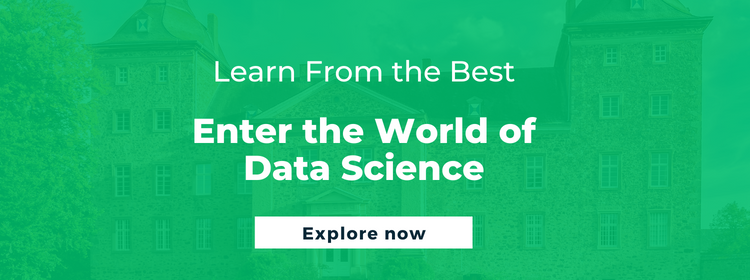How to Prepare for a Great Data Engineer Interview and Crack it

- How to Prepare for a Data Engineer Interview
- General Data Engineer Interview Questions
- Basic Data Engineering Technical Questions
- Data Engineer Process Interview Questions and Answers
- Advanced-Data Engineer Interview Questions and Answers
- Learn New Skills From Online Courses Hosted by Emeritus
- Useful Tips For Data Engineer Interview
Data engineer interview questions are designed to test your knowledge of the relevant field and your ability to analyze and interpret data. They evaluate your skills in accordance with the company’s tech stack and technological objectives. It is crucial for a data engineer to rehearse for an interview, whether they are just entering the job market or they are seasoned. With this guide, they can prepare for the data engineer interview process and feel confident about acing it.
How to Prepare for a Data Engineer Interview
To start with, you should familiarize yourself with all the principles and jargon used in data engineering before attending an interview. The following suggestions will also help you prepare for a technical data engineer interview:
- Develop your SQL skills by creating, editing, and managing databases. You should also become an expert in data analytics, modeling, and transformation
- Familiarize yourself with the application of Python, Scala, or C++ to resolve coding obstacles. The majority of businesses use live coding challenges and take-home tests to evaluate programmers’ skills
- Create data, ETL, or delivery pipelines by designing an ETL pipeline. You must be aware of the testing, validation, scaling, and upkeep of data pipelines
- Practice loading, converting, and data analytics using analytical engineering. Create a dashboard for system performance and data quality
- Review sample practice questions to prepare you for the interview. Use Google to conduct a quick search to gain access to hundreds of queries
- Learn about contemporary data engineering tools; even if you are unfamiliar with them, you should be aware of how they operate and how they interact with other tools. Businesses are constantly searching for new technologies that might boost productivity at a cheaper cost
- Learn about batch and streaming processing. For batch processing, use Apache Spark, and for streaming data, use Apache Kafka. These tools are in high demand and can help you get hired by the best firms
- The interviewer may occasionally inquire about Kubernetes, Terraform, scripting, Docker, and cloud computing (GCP, AWS, Azure). These tools can be used to set up computer and storage resources in the cloud or on-site. It’s a good idea to become familiar with these technologies and use them in your portfolio work
General Data Engineer Interview Questions
1. Tell Me the Best Data Framework for Data Analysis. What Do You Prefer?
This answer will be based on your experiences as a data engineer. If you know about modern tools and how to connect them to third-party apps, this question won’t be tough for you to answer.
You can talk about the tools for database management, data warehousing, data orchestration, data pipelines, cloud management, data cleaning, modeling and transformation, batch processing, and real-time processing.
Don’t forget that there’s no wrong answer to this question. The interviewer judges your skills and experience by asking this question.
2. Tell Me the Hardest Thing About Being a Data Engineer
The hardest part of being a data engineer can be learning and mastering numerous technologies. You must continue incorporating new instruments that can raise the data systems’ performance, security, dependability, and return on investment. It might be challenging to understand disaster management, data governance, security protocols, business requirements, and forecasting data demands. Being in charge of so many things makes your work challenging.
3. What Parts of Being a Data Engineer Do You Enjoy Most?
It’s critical to review the job description and company profile before attending an interview. By doing this, you’ll be able to fill in any gaps in the recruiting manager’s requirements. Be sure to mention it explicitly if they are searching for someone who can design and manage data pipelines. In general, you can consider your abilities, background, and knowledge, as well as how these things set you apart from the competition.
Basic Data Engineering Technical Questions
1. How Would You Design a Data Pipeline
This kind of basic case study inquiry seeks to understand how you tackle a topic. You should always follow up with clarification inquiries, such as:
- What kind of data are you processing?
- What purpose will the data serve?
- How much data will be retrieved? By how often?
- What are the project’s requirements?
These inquiries will shed light on the kind of response the interviewer is looking for. Following that, you can outline your design process, which begins with selecting data sources and data intake techniques and continues with designing data processing and execution plans.
2. Describe a Time When You Had Difficulty Merging Data. How Did You Solve this Problem?
Data cleaning and processing are two of the most important parts of an engineer’s job. Unexpected problems will always come up. Interviewers ask these kinds of questions to find out:
- How well do you adapt
- How much have you been through
- What is your ability to solve technical problems?
Explain the problem, your solution, the steps you took to solve it, and the result.
3. What ETL Tools Do You Use? What Tools Do You Prefer?
In a different version, the question would be about a specific ETL tool, like “Have you used Apache Spark or Amazon Redshift?” If the job description mentions a tool, it could come up in a question like this. One tip is to list any training you’ve taken, how long you’ve been using the tech, and what tasks you can do with it.
4. Tell Me the Most Important Question to Ask When Designing Data Pipelines?
This question evaluates how you acquire information from stakeholders prior to commencing a project. The following are a few of the most typical questions to ask:
- What purpose does the data serve?
- Has the information been verified?
- How frequently will the data be retrieved and for what purposes?
- Who is going to run the pipeline?
5. Tell Me About a Situation Where You Dealt with Alien Technology
This question asks, “What do you do when your technical skills aren’t as strong as they could be?” You could say the following in your answer:
- Took boot camps for education and data engineering
- Learned on your own
- Worked with experts and other people
Data Engineer Process Interview Questions and Answers
1. Walk Me Through a Project You Worked on From Start to Finish
Make sure you tell them how it began and what business problem you tried to solve. Also, explain each step from getting to the raw data to turning it into structured data that has been cleaned up.
When you’re working on more than one project, this question can stop you in your tracks. Reviewing the last five projects you worked on is a good way to answer this question. You can read about the project and figure out what the problem is.
2. What Algorithm(s) Did You Use on the Project?
Whenever the interviewer will ask this question, you have to elaborate on the algorithms you have used on the project you worked on. You can answer it this way.
My role in the project has required me to consume TLC Trip Record data, then process, transform, and serve that data via Kafka and Spark streams.
- The cloud environment uses GCP, Terraform, and Docker.
- For data ingestion, GCP, Airflow, and Postgres are used.
- BigQuery, Postgres, Google Studio, and Metabase were used for analytical engineering; BigQuery and Airflow for data warehousing.
- I did processing in batches with Spark.
- Kafka and Spark were utilized for streaming data.
Advanced-Data Engineer Interview Questions and Answers
1. What are the Components That are Available in the Hive Data Model?
The Hive data model is made up of the following parts:
- Tables
- Partitions
- Buckets
2. What is the Meaning of Skewed Tables in Hive?
A table that contains column values more frequently is said to be skewed. When a table is created in Hive with the SKEWED flag, skewed values are stored in separate files, while the remaining data are written to a different file.
3. What are the Collections That are Present in Hive?
The following are examples of complicated data types that are supported by Hive:
- Map
- Struct
- Array
- Union
4. What are *Args and **Kwargs Used for?
When you are unsure of how many arguments to send to a function, you can use *args and **kwargs as arguments. You can pass multiple arguments or keyword arguments to a function using *args and **kwargs.
5. Have You Earned Any Sort of Certification to Boost Your Opportunities as a Data Engineer?
Mention all of your industry-related certificates in chronological order, along with a brief explanation of what you had to learn to obtain each one.
Learn New Skills From Online Courses Hosted by Emeritus
Receiving online education and certification is a great way to prepare for a data engineer job interview. If you’re interested in a career as a data engineer, you can get a head start by enrolling in one of Emeritus’ online data sciences courses.
Useful Tips For Data Engineer Interview
The tech sector is thriving, and although this means more opportunities, it also means more competition as the field becomes increasingly saturated with specialists. To improve your chances of getting hired, signing up for online courses in data sciences on Emeritus will help you better prepare for any interview-related questions you might be asked. Learn the ropes of this dynamic field, from the ground up, and launch a successful career.
Write to us at content@emeritus.org


















